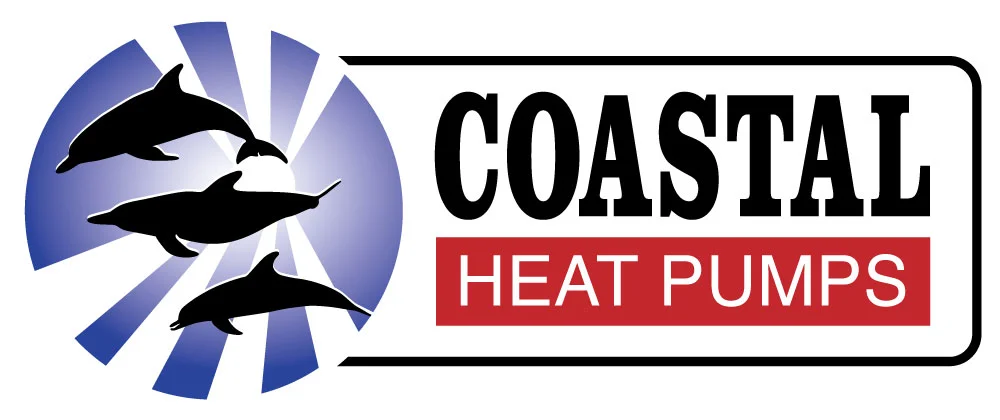Blog
Coastal Heat Pumps > Blog > Heat Pumps > Energy Efficiency and Heat Pumps: Saving Money and the Planet
- by Tracy
- Heat Pumps, Heating Tips, News, News2
Energy Efficiency and Heat Pumps: Saving Money and the Planet
Heat pumps are taking the HVAC industry by storm. Many homeowners across Vancouver Island are choosing to upgrade from traditional ACs and furnaces to an all-in-one heat pump system. Heat pumps are extremely energy efficient, making them an appealing choice both for up to 80% yearly savings on your energy bills and long-term household sustainability.
Heat pumps are eco-friendly in a way that appeals to modern homeowners. With a heat pump system, you can not only pay less for heating and cooling throughout the year, but also reduce your home’s carbon footprint and make a long-term investment in an eco-friendly lifestyle.
How can heat pumps save money and the planet at the same time? We would love to tell you.
Spending Less, Doing More with Heat Pumps
A heat pump is a system that can provide both heating and cooling from the same unit. It achieves this by either moving heat out of your home (cooling) or drawing heat from the outside air into your home (heating) using a system of refrigerant compression and expansion.
The process requires electricity, but far less electricity than most modern ACs and heating units combined. Because heating and cooling can equate up to half your monthly power bill, an energy-efficient HVAC system can save a great deal of money that accumulates over months and years to ensure a valuable long-term investment.
Why Energy Efficiency is a Planet-Saving Effort
At the same time, using less electricity is also a powerful way to make an ecological difference. Most local power plants generate electricity by burning natural gas or coal, which creates carbon emissions. Power plants are still necessary to provide stable power to large community power grids, but the less electricity you need, the lower the daily demand for fuel consumption becomes. As more and more families adopt heat pumps, communities will experience a cumulative reduction of energy demand and, as a result, local carbon emissions.
Heat Pumps Use Less Electricity All Year Long
In terms of both money and eco savings, the most important thing about heat pumps is that they use less electricity than other HVAC systems. Heat pumps operate as efficient ACs as well as heat sources.
The most recent and advanced heat pumps introduce variable-speed compression. This means the heat pump provides only as much heating or cooling as is needed so it can use less electricity to make the home comfortable in moderate outdoor temperatures. That means less power for spring cooling and autumn heating.
Most furnaces and electric heaters achieve 60% to 98% energy efficiency when generating heat. But heat pumps can achieve up to 200%-540% heating energy efficiency by transferring heat indoors instead.
This means less power, lower power bills, and a far lighter impact on the environment from your heating and cooling.
Say Goodbye to Fuel Heating and Emissions
Heat pumps also offer the advantage of using electricity only when providing heat. Like an electric heater but far more efficient, you can say goodbye to fuel-based heating and the carbon emissions they require. Gas, propane, and coal heating all consume material and emit carbon pollution to generate heat. When you switch to a heat pump, you are relying on electricity alone to heat your home, minimizing carbon emissions and even the amount of electricity required for heating compared to an electric heating unit.
One Less Appliance, Much Smaller Carbon Footprint
Ducted heat pumps are two-unit systems with an indoor unit and an outdoor compressor – like a traditional AC. However, unlike a traditional HVAC system, heat pumps do not require an additional heating unit. This means you need one less appliance but generate a much smaller carbon footprint at the same time.
First, subtract the carbon cost of building and transporting the heating unit. Then subtract the carbon emissions from running the furnace or the added electricity of operating an electric heater. With both the one-time and long-term considerations, a heat pump significantly reduces the carbon footprint of your home just by removing the need for a separate heating unit.
Stop Turning Your HVAC Off and Back on Again
You may know that traditional ACs and heaters have two modes: On and off. Either cold/hot air is pouring from the vents, or it isn’t, and the system uses power cycles to try and maintain the right temperature. This can lead to uneven heat or cold cycles, wear-and-tear on the system, and a lot of extra power use starting up the systems repeatedly.
With modern heat pump’s variable-speed compressors, the system runs steadily at low power all the time, adjusting the power and compression needed based on the weather and temperature demand. This ultimately results in power savings and a more comfortable home.
Spending Less on HVAC Repairs Over Time
In addition to using less power, variable-speed compressor’s steady performance results in less wear on your heat pump system. This is why the latest heat pump models typically require less service work over time because the parts experience less fatigue from turning on and off all the time.
In terms of saving money, you may enjoy fewer visits from the HVAC technician, fewer repairs, and a longer lifespan for your heat pump. Heat pumps typically outlast their warranty period with fewer service visits as a result, if they are maintained regularly.
Energy Incentives for Heat Pump Installation Costs
What about installation costs? Because heat pumps are good for the environment, both the federal and provincial governments offer energy incentives to lower the cost of heat pump installation.
You can apply for up to $3,000 in provincial incentives in British Columbia or you may qualify to receive up to 100% savings with the new Energy Efficiency Program depending on your household income. This can drastically reduce the cost to install a heat pump in your home, replacing an older and far less energy-efficient heating and cooling system.
Sustainable Refrigerant Systems
Finally, let’s talk refrigerant. Eco-enthusiasts may already know about the retirement of old-school R22, the refrigerant removed from the market after it was discovered to be an ecological hazard. This has spurred an industry-wide endeavor to use more eco-friendly refrigerants in all ACs and heat pump systems.
Modern heat pumps use a variety of refrigerants rated for a low global warming impact and zero-ozone depletion potential. This ensures that heat pumps are safe for the environment even in the event of a refrigerant leak and used refrigerant disposal.
Heat Pumps: An Eco-Friendly and Cost-Effective Home Upgrade
If your HVAC is ready to be replaced, you can enjoy lower energy bills and a smaller carbon footprint by choosing a heat pump system for the replacement. The experts of Coastal Heat Pumps can help you choose the best advanced heat pump for your home, claim your energy incentives to lower the installation cost, and begin enjoying energy-efficient heating and cooling year-round.
Get started by booking an in-home estimate today.

